Julian: Civil Rights & Human Rights Legal Org
Invest in The Future of Civil and Human Rights
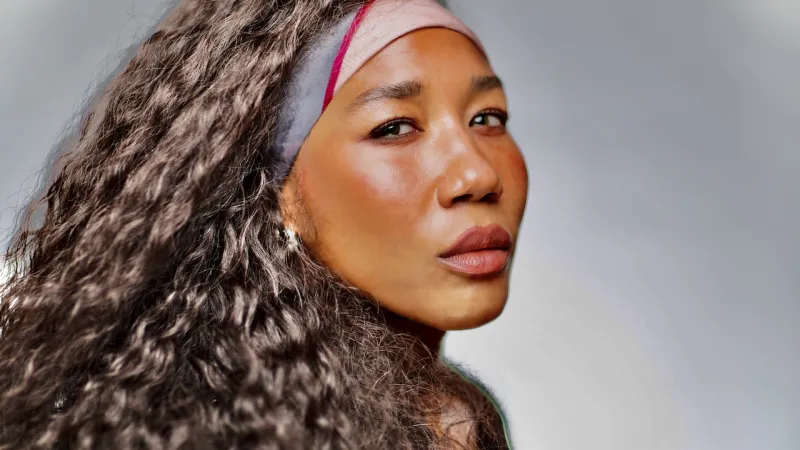
Project Description
THE MISSION
Julian’s mission is to attack discrimination in all forms through legal advocacy and activism in order to exact justice, foster equality, and innovate and advance the doctrines of civil and human rights law so that they will evolve in stride with social change and fulfill their purpose of protecting and empowering the vulnerable. Our intention is to revive the spirit, effectiveness, strategy, and impact of the civil rights movement to end lynchings, unjustified police killings, and all other hate crimes and rights violations.
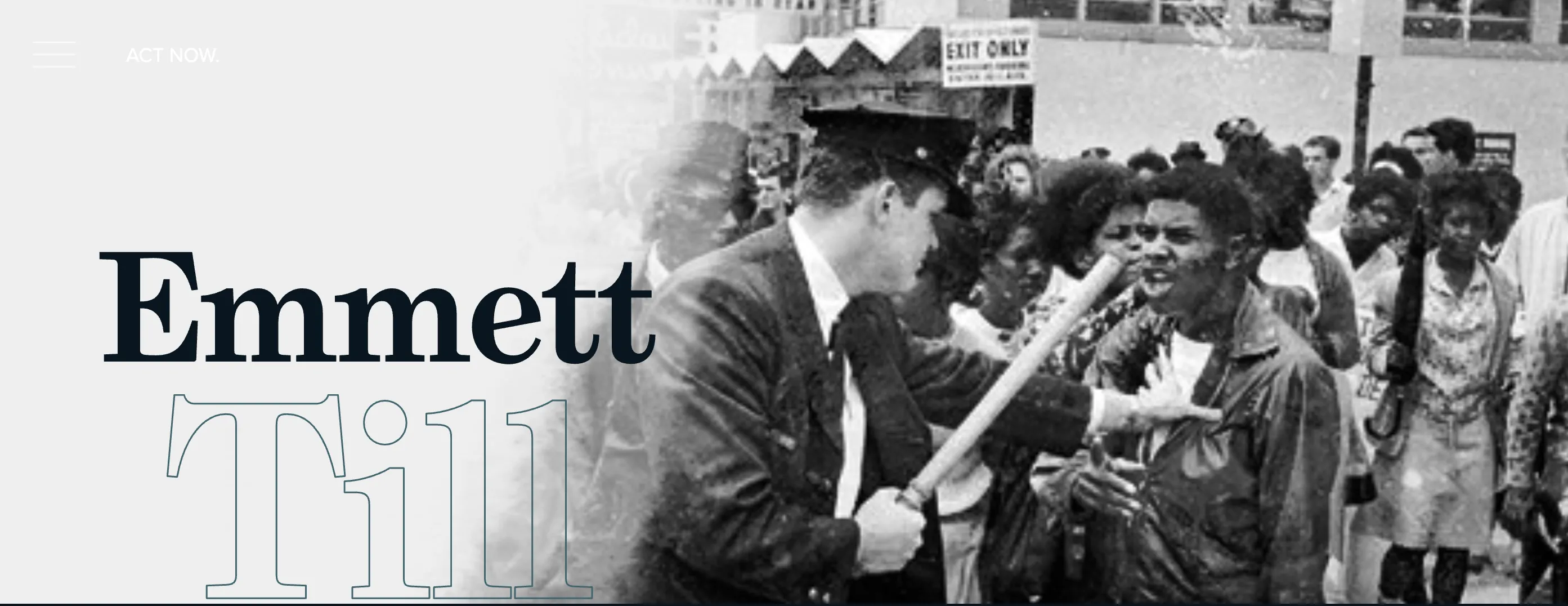
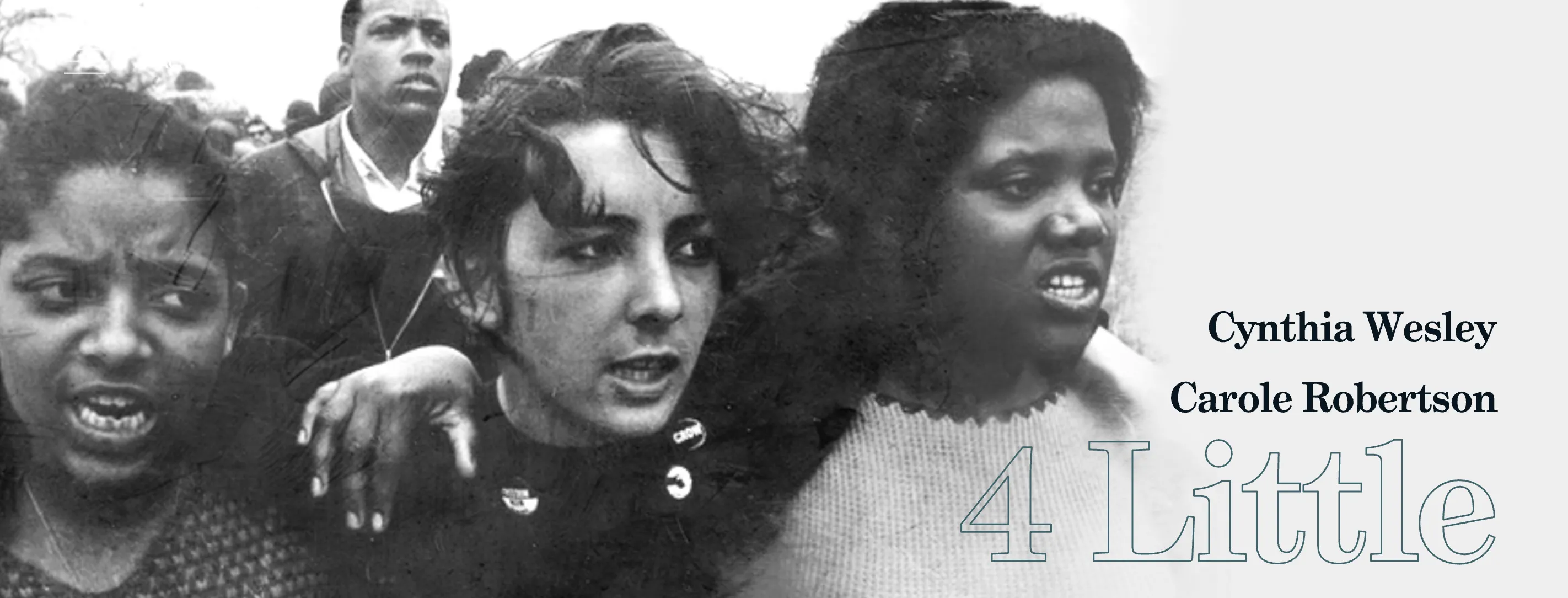
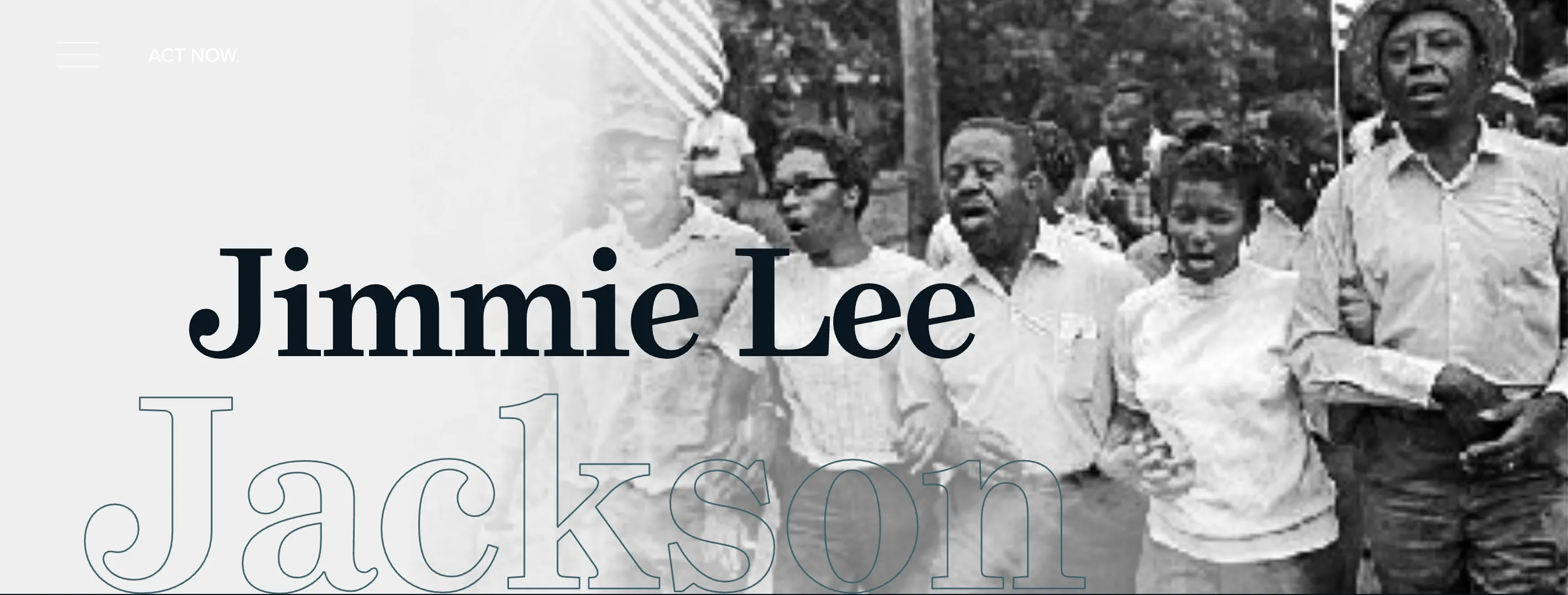
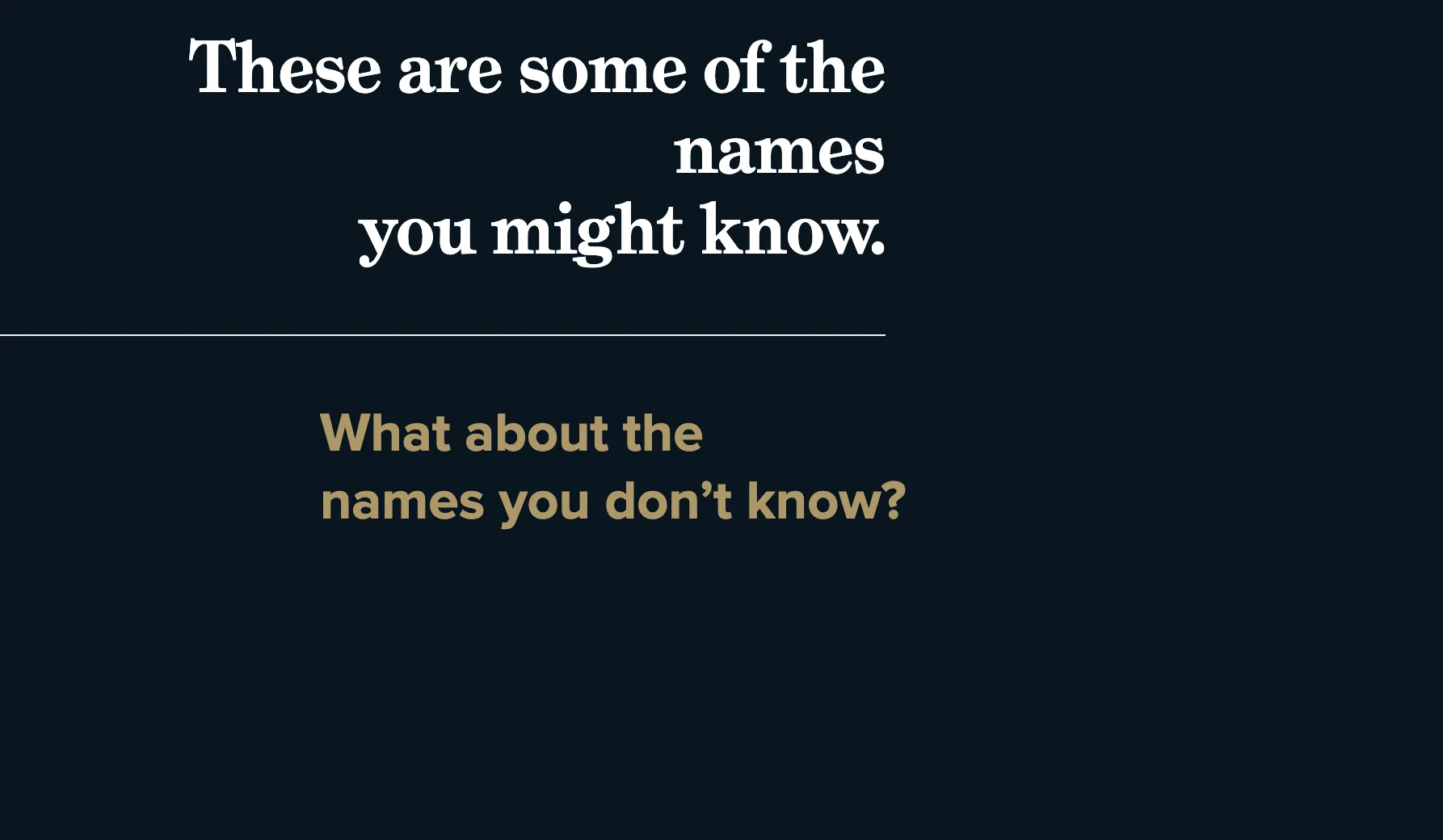
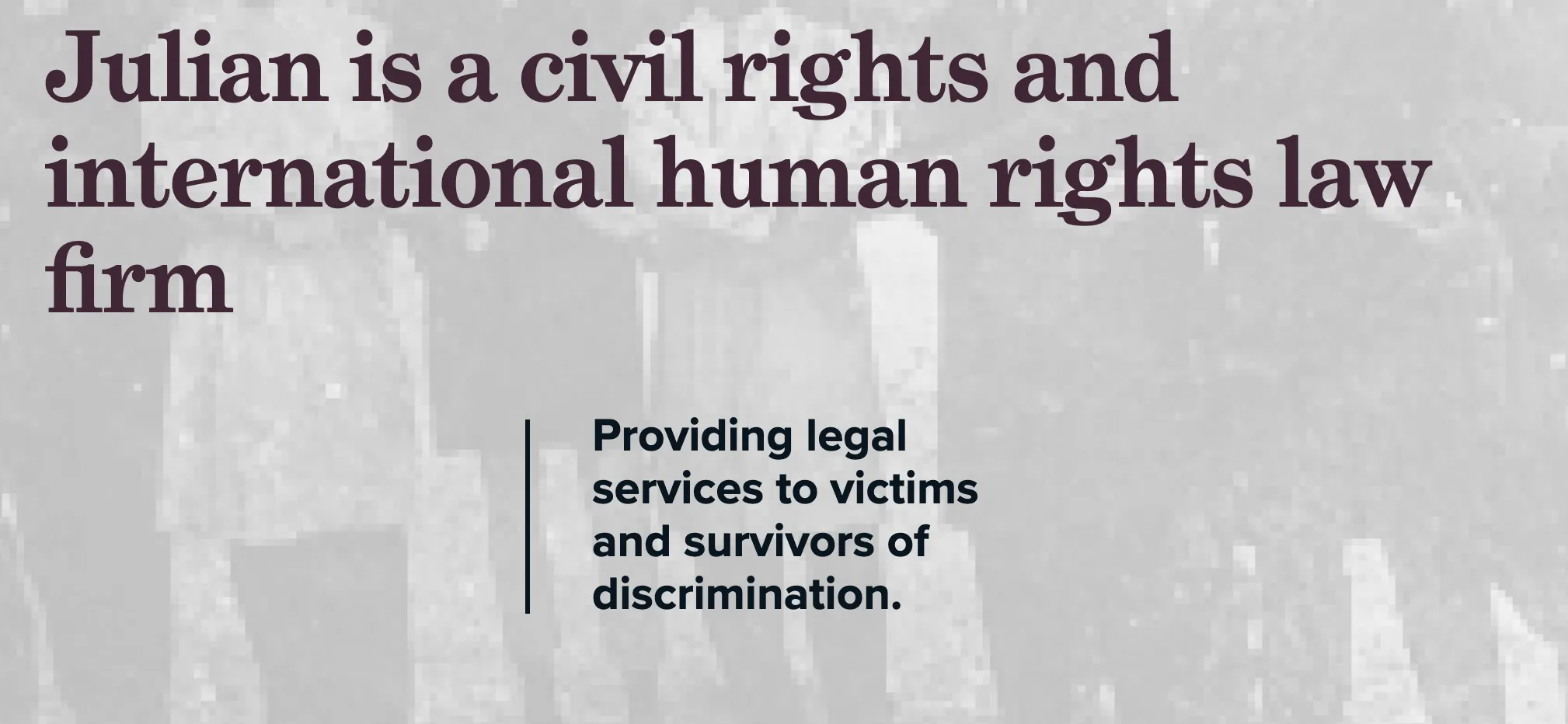
THE PROBLEM
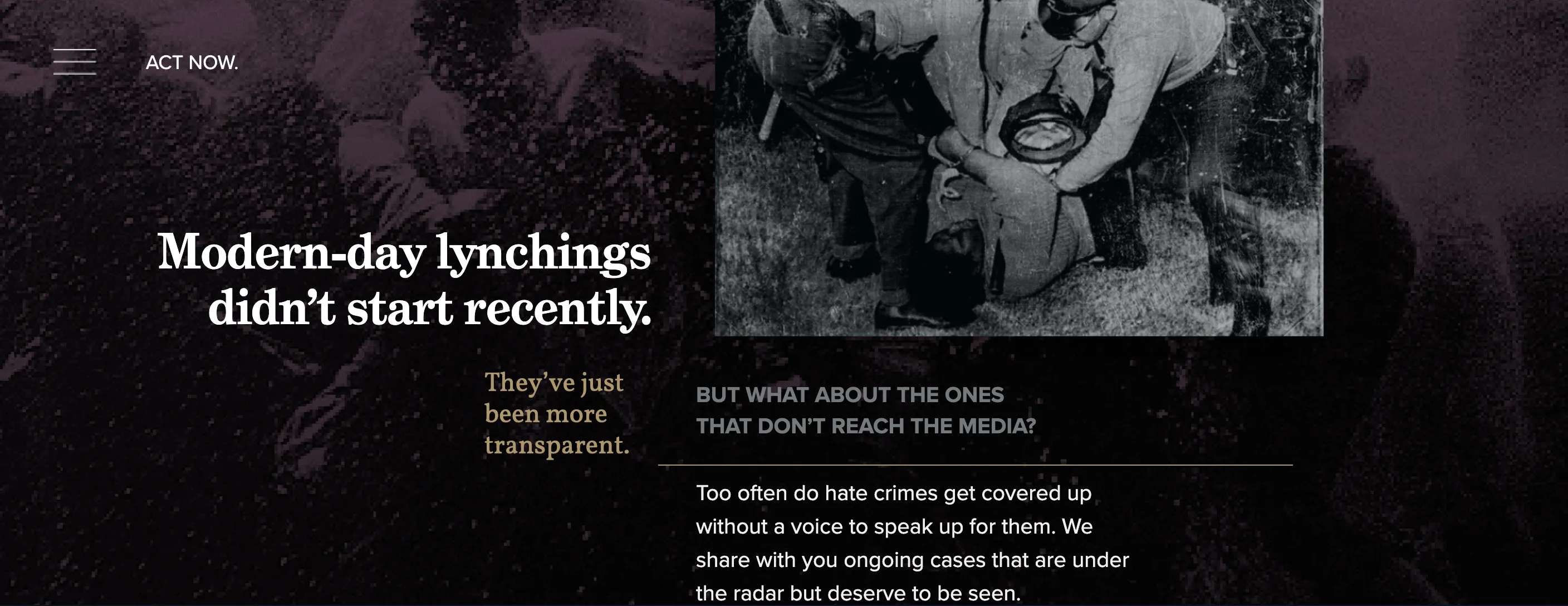
Julian solves the issues of:
1. Modern-day lynchings not being addressed, especially in isolated, overlooked, and vulnerable communities. Since 2000, there have been at least eight suspected lynchings in Mississippi alone. Despite convincing evidence, no one has ever been charged in a single case, and the medical examiners in half the hangings have a history of falsifying records.
2. Outsiders unfamiliar with rural life making decisions that don’t align with community interests.
3. Families not having access to courts due to poverty.
4. The deficit of innovation in civil rights, preventing the doctrine from keeping pace with social change.
5. The relatively low success rate of civil rights litigation.
6. The lack of collaboration among civil rights attorneys.
7. The safety risks associated with protesting.
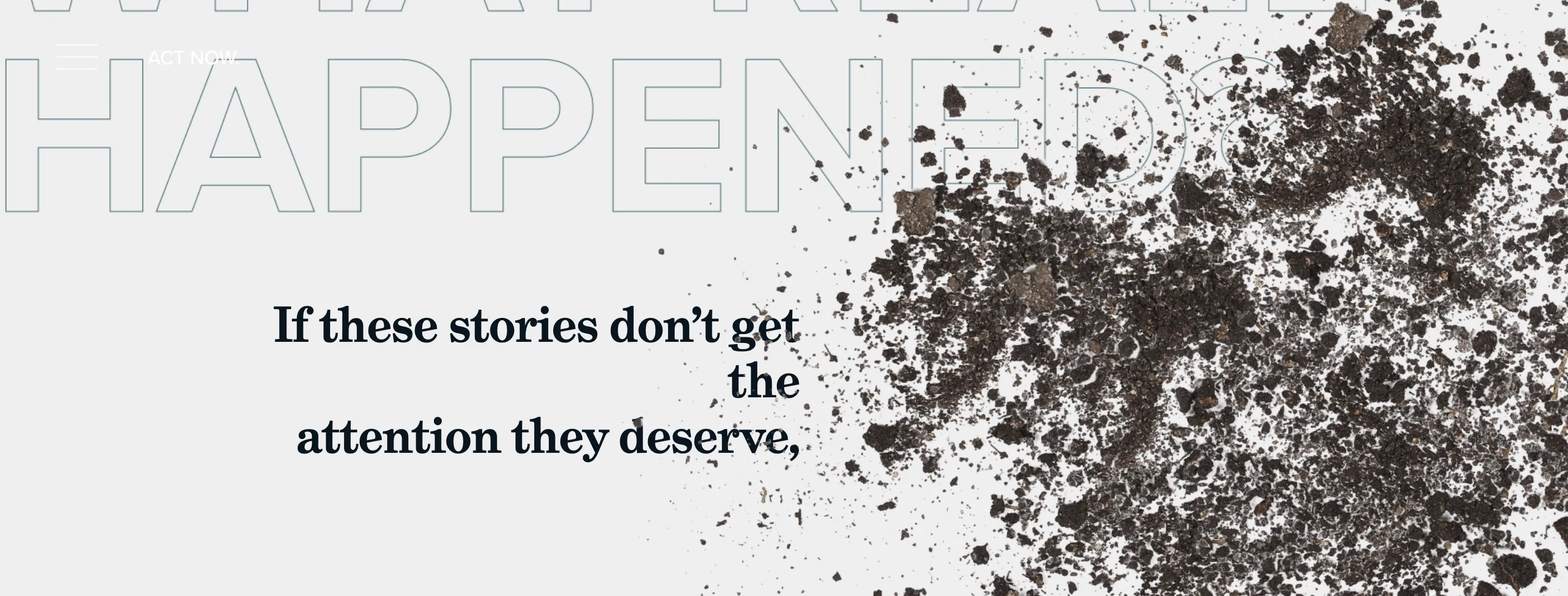
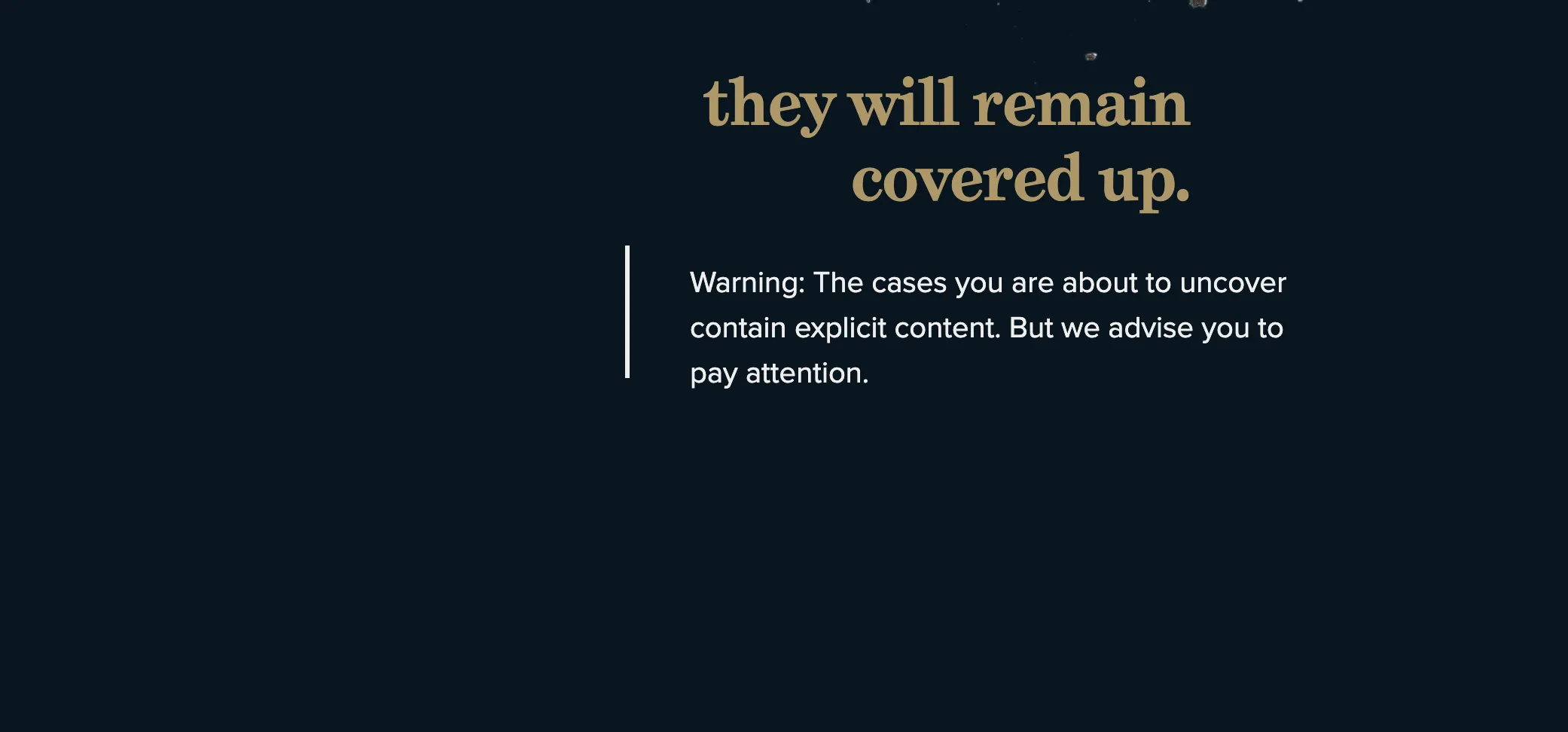
Julian helps solve these problems, and here are some ways how:
Issue 1: Investigating and litigating civil rights cases, especially lynchings, in overlooked communities that other groups can’t and don’t access. Often, individuals who live in isolated areas won’t talk to outsiders. However, being born and raised in rural Mississippi, Julian's founder, Jill Collen Jefferson, identifies with rural and isolated Americans. So, she has access to a great deal of information that comes purely by trust. Julian's method also garners trust. Rather than practicing in an office afar, Julian intimately embeds itself in each community where it has a case and its staff integrates its lives with theirs.
Issue 2: Julian only embeds itself in a community with permission. It then works with families to construct goals that align with their needs. As Julian investigates, it uplift the community by mentoring, helping individuals find jobs, identify funding, and take steps toward their goals. Before leaving a community, Julian conducts review sessions with the family and community stakeholders to ensure that their needs were met.
Issue 3: Julian does not charge families for its services. Instead, it relies on donors and alternative revenue streams, such as IFW crowdfunding, to fund its work.
Issues 4, 5, 6, & 7: Julian addresses these issues by incorporating innovative cognitive strategies into its litigation methodology and by launching a three-phase, multi-year technology project that has already been reviewed by tech experts for viability.
Julian works in isolated, overlooked, and vulnerable communities. The market for our work is national and global, spanning races, genders, religions, and nationalities of millions.
We will end lynchings, change the way litigation proceeds, how crimes are tracked, and how people protest and engage on a mass scale.
We launched on January 14 of this year and just won an $11 million-dollar verdict in our first case—a modern-day lynching where a 21-year-old black man was found hanging from a tree in his white girlfriend's front yard near midnight in Mississippi. Julian, through its own investigation, identified the primary suspect and is currently pushing for criminal charges. We're also litigating other modern-day lynching cases as well as cases involving other rights violations, such as wrongful convictions and equal protection violations. Julian does not just work for the present; we build the future.
Through litigation, we push back against all forms of discrimination to change society. Through technology and innovation, we create shifts in consciousness and transform the way litigation proceeds, how crimes are tracked, and how individuals protest and engage on a mass scale. Through strategy, we make sure it’s effective and built to last. When we investigate a case, we integrate our lives with the lives of victims and their families to gain a comprehensive understanding of their needs and desired outcomes. This combination of an intimate organizational structure, exclusive cases, agility, creativity, innovation, reach, and community intimacy is unique.
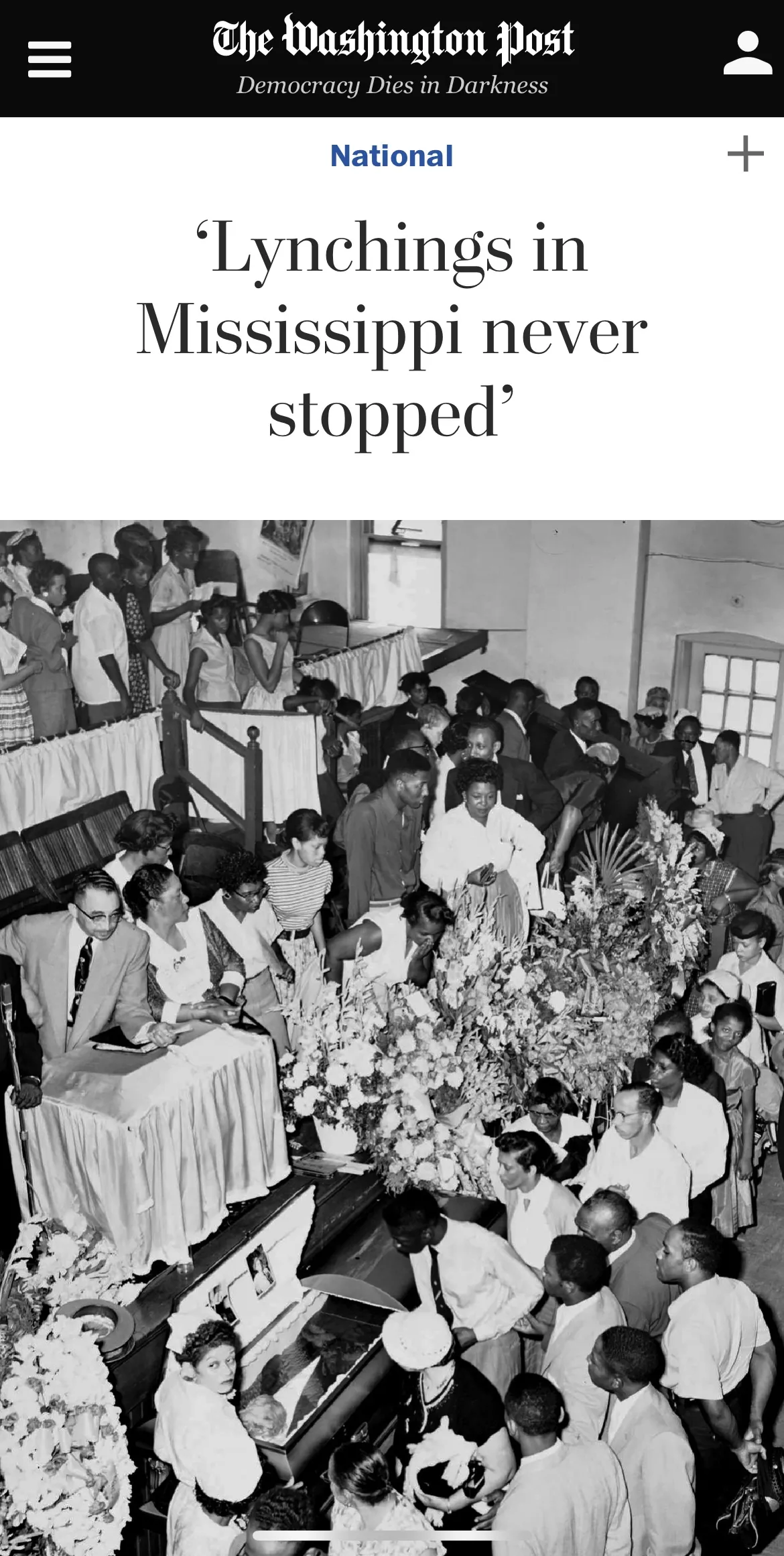
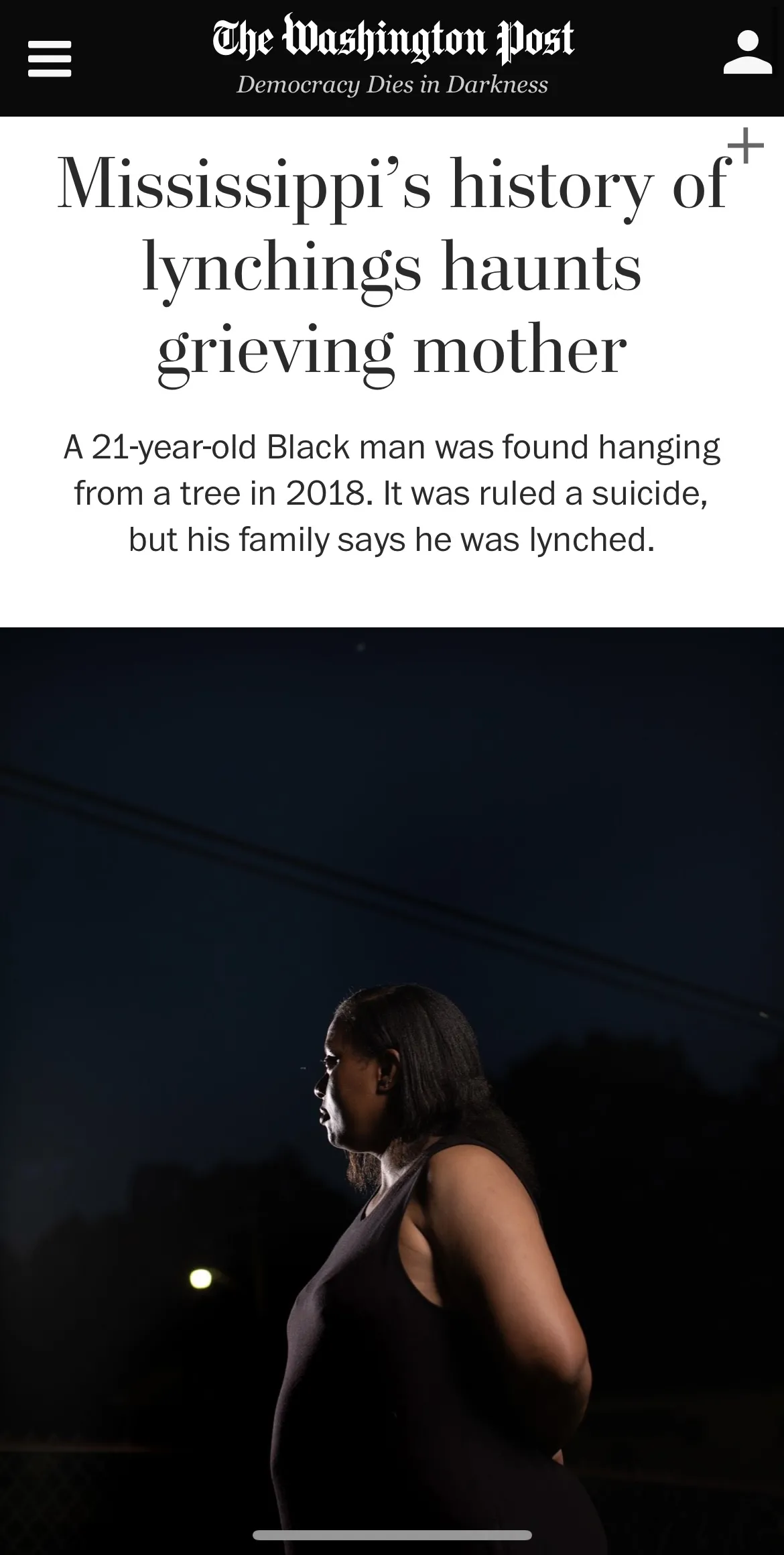
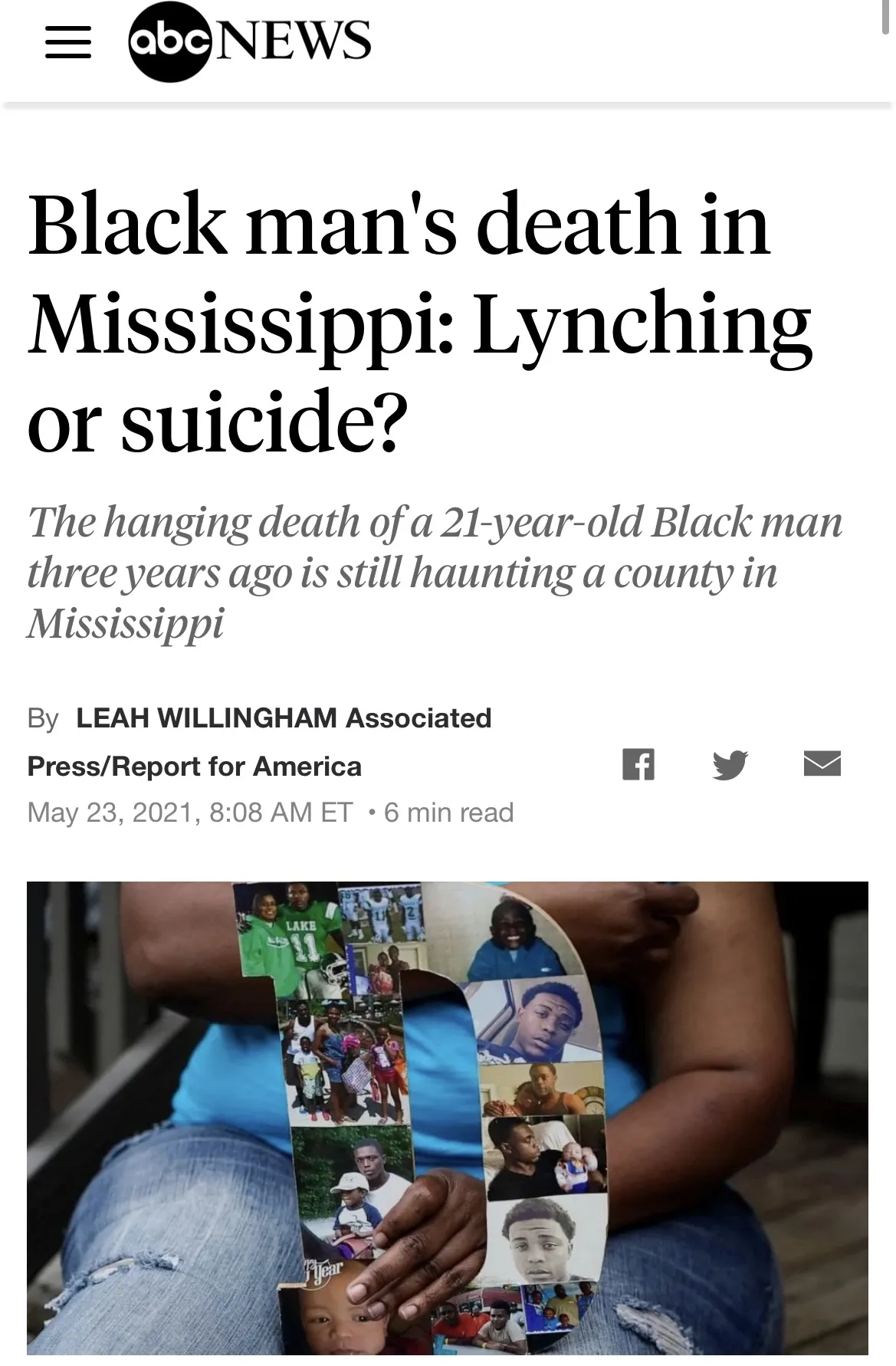
WITHOUT ANY FUNDING, WE HAVE:
1) Created and submitted a proposed U.S. Civil and Human Rights Agenda to President Biden's administration and won our first victory when he signed the Executive Order, directing the DOJ not to renew contracts with private prison operators.
2) We investigated, solved, and won litigation in the Willie Jones case, mentioned above--a case that the Mississippi Bureau of Investigation and the FBI failed for two years to solve.
3) Analyzed, found gaps, and created detailed proposals to amend Constitutional standards of intent, which have kept civil rights attorneys from winning worthy cases and advancing the doctrine of civil rights law
4) Registered people in rural America who’ve never before voted.
5) Pushed for and succeeded in getting Minnesota's legislature to convene a special session to discuss a police brutality bill.
6) Began advising on and/or litigating cases in every region of the United States, and we’ll expand into Africa in the first quarter of our second year.
And that's just a taste. With funding, we could move mountains.
Julian seeks funding to:
- Hire attorneys, paralegals, and researchers
- Pay operation costs, such as travel and legal database subscription fees
ABOUT THE FOUNDER
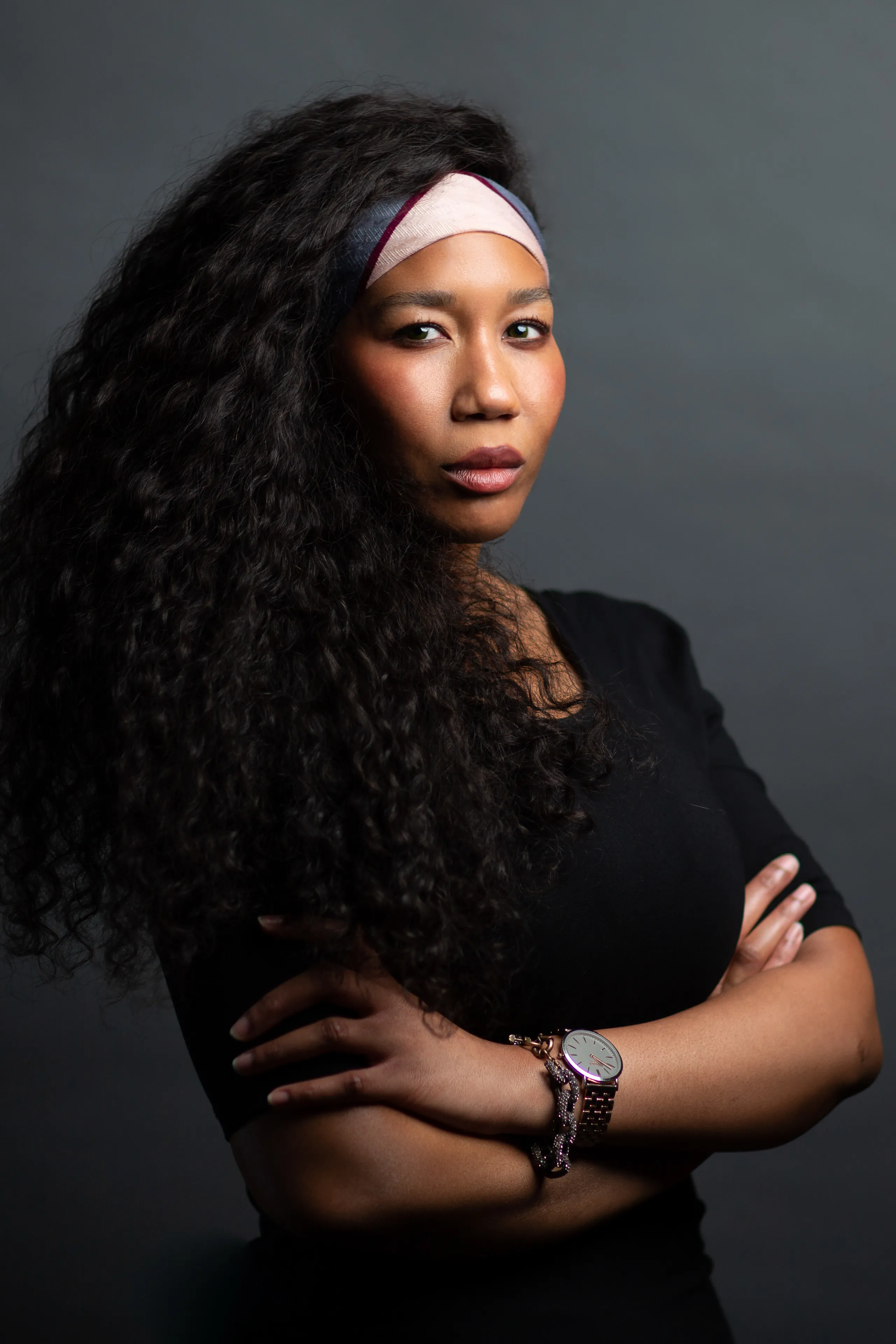
Julian was founded by Jill Collen Jefferson who grew up in the de facto segregation of rural Mississippi, just outside the town where the KKK was founded. She researched civil rights cold cases from the 1960s for years with the Civil Rights Cold Case Project and concentrated on civil rights and human rights as a student at Harvard Law School. She was trained by the leaders of the civil rights movement. She learned civil rights history and strategy from her lifelong mentor Julian Bond, the organization’s namesake. She learned the nuances of civil rights policy from Congressman John Lewis, and she learned how to implement those policies while in President Barack Obama's White House before conveying them to the nation as one of four speechwriters on President Obama's 2012 campaign. Now a civil rights and international human rights attorney, she solves issues at the core of our nation’s problems that few even know exist in order to build the future of civil rights.
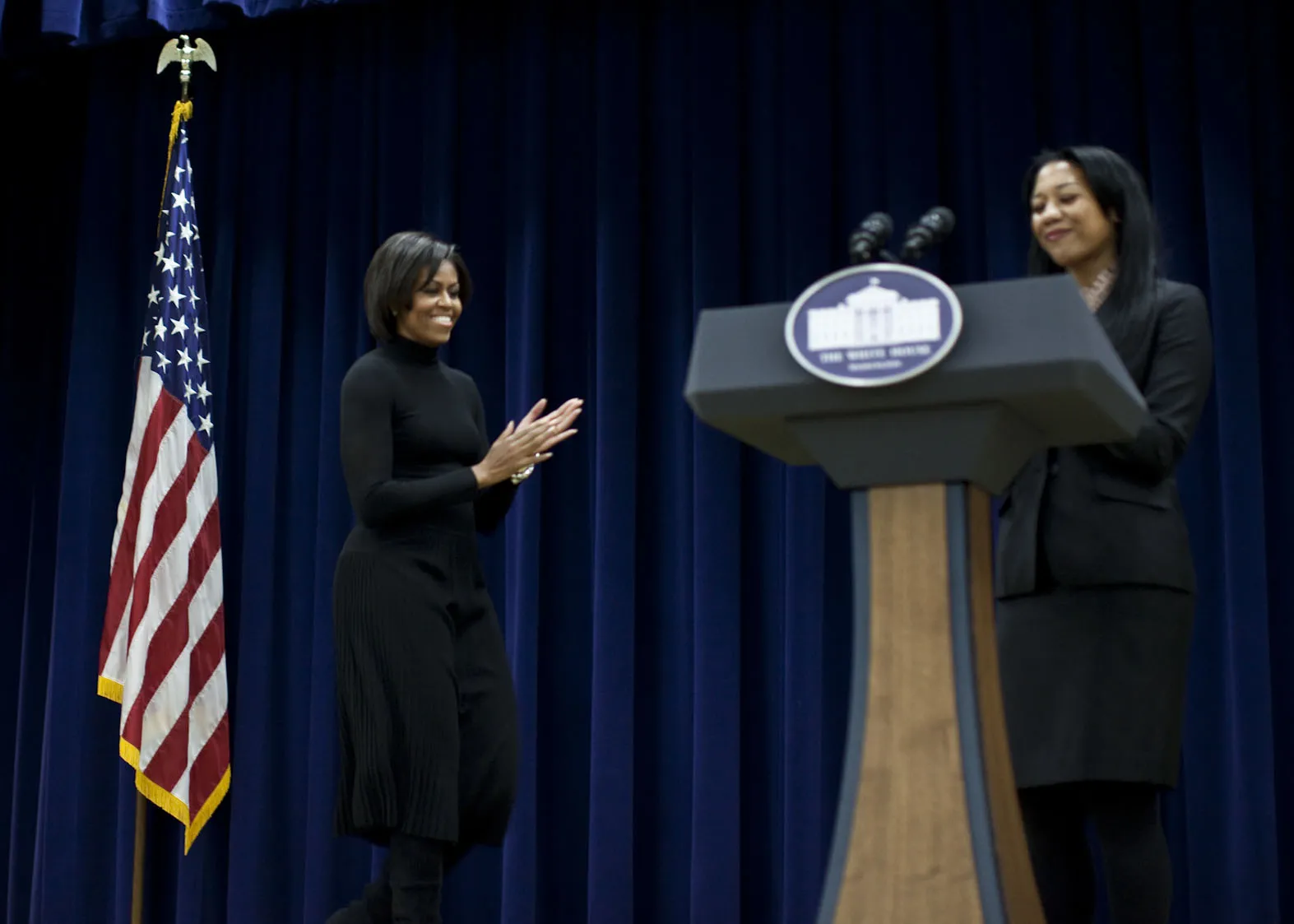
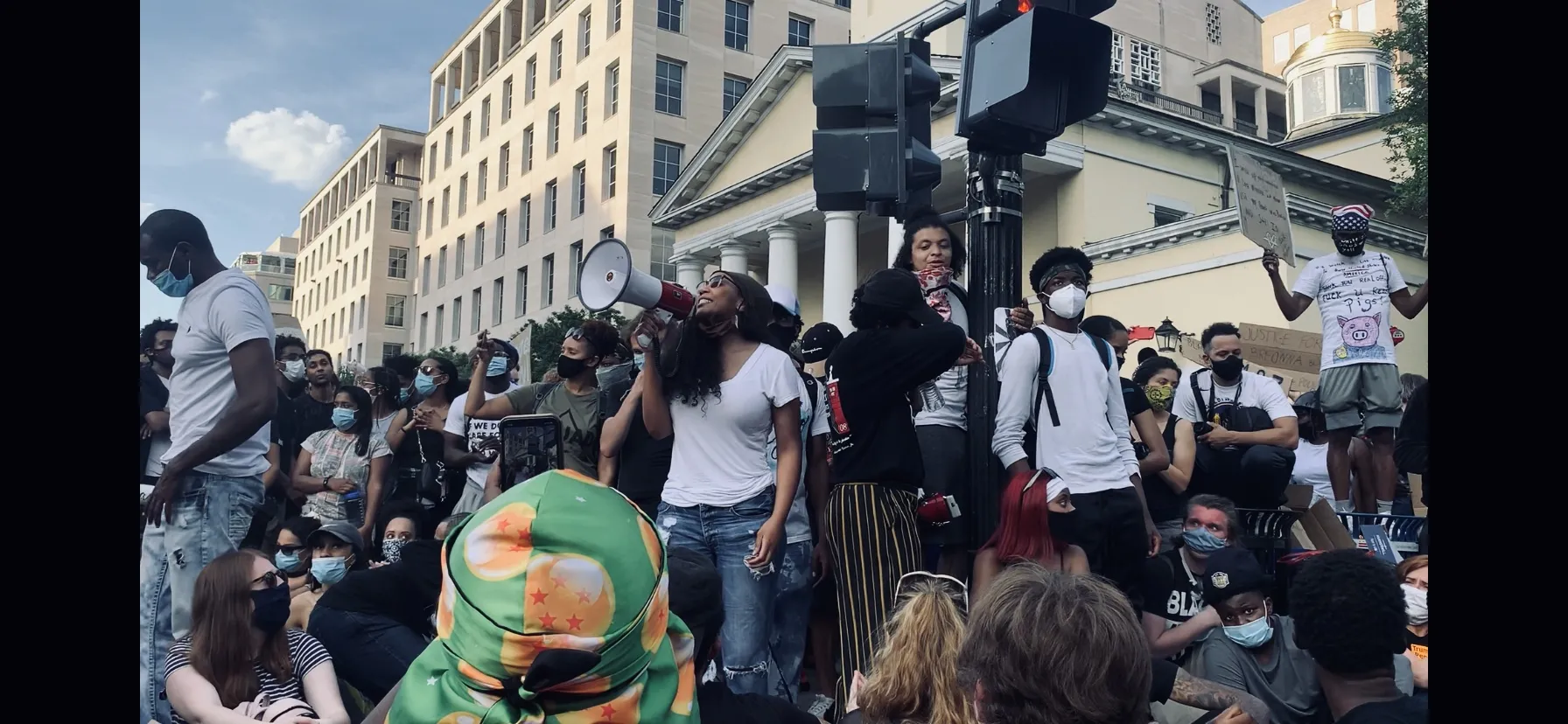
THANK YOU.
To you, thank you so much for your support. Julian’s story is your story. Together, we will build the beloved community. Together, we won’t just move outside the box, we’ll redesign it.
We, as people, are not powerless. We’ve got more work to do, more steps to take, a few more mountains to climb. But today, we honor the stories and struggles that brought us here. Today, we affirm the future our nation deserves. Today, we continue our journey.
...And tomorrow, we’ll keep on marching.
Julian is the future of civil rights. Come, let us build a new world together.

Updates
The Campaign FAQs
Frequently Asked Questions:
- QUESTION: Are donations tax exempt?
- ANSWER: Yes, they are. All donations above $1,000 are tax exempt through Julian's fiscal sponsor.
Just Because I Care
The first step in civil rights is courage. This reward honors the courage of Mrs. Fannie Lou Hamer who risked everything, was beaten, and maimed for life because she believed with everything in her that we were all meant to be free. Follow her in taking the first step.
In civil rights, we lead by example because we are not just building the beloved community; we are the beloved community. Mrs. Ella Baker was the mastermind behind the Student Nonviolent Coordinating Committee (SNCC), the organization that fought against oppression through direct action, such as sit-ins at lunch counters across the South. She taught SNCC that civil rights "is bigger than a hamburger." Those words ring true today. This isn't just about not being lynched or brutalized. It's the freedom to be authentically who you are in any setting. It's being born somebody to everybody. It's acceptance and love. It's a new world.
This playlist carries with it the emotions, joy, and purpose of that world. Many of these songs, I fell in love with at the same time I fell in love with civil rights, and they remind me of my calling. Let them lead you to see the leader you are and the one you will become.
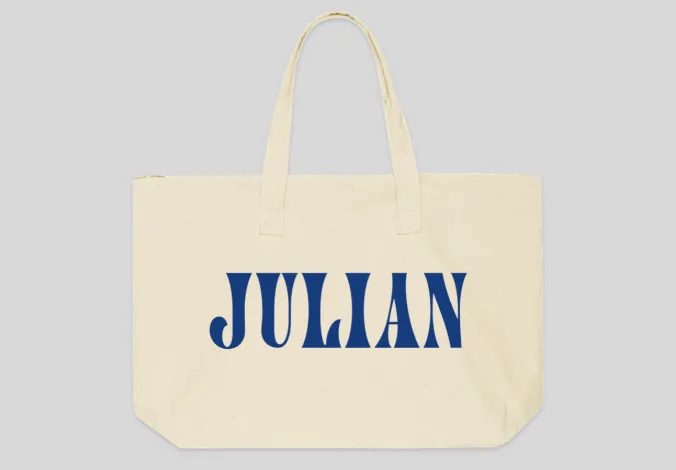
In civil rights, not every day will feel like a victory. On those troublesome days--the days in between--we must have faith and keep working toward the victory that will come. One thing John Lewis always said in public and in private in his office was "Keep the faith." He knew how important that single element was to fulfilling our calling on this earth and creating the world we deserve.
This Julian carryall is symbolic of that faith that you must carry with you at all times. It encapsulates all that we do, just as this carryall is a capsule for your materials, your life, the element of you. All you have to do is keep the faith.
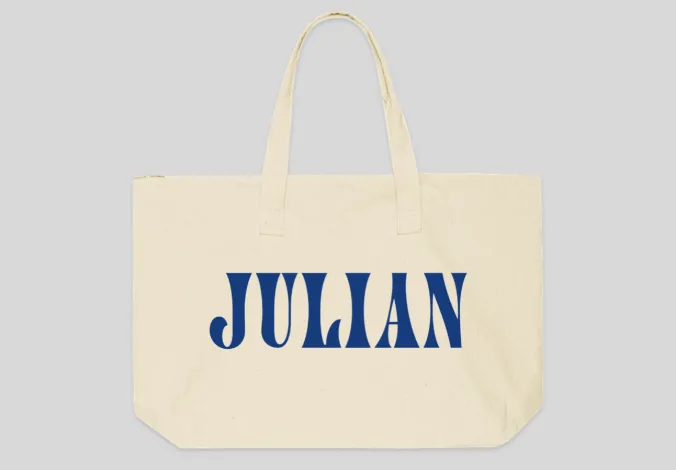
Accomplishing goals in civil and human rights requires a strong, detailed strategy. Bayard Rustin, a key strategist behind the 1963 March on Washington, understood this fact. One reason why the civil rights movement was so successful is because its leaders understood the importance of strategy, tactics, discipline, and execution.
As a thank you for being part of the future of civil rights, you will get the Juneteenth playlist + the Julian Carryall.
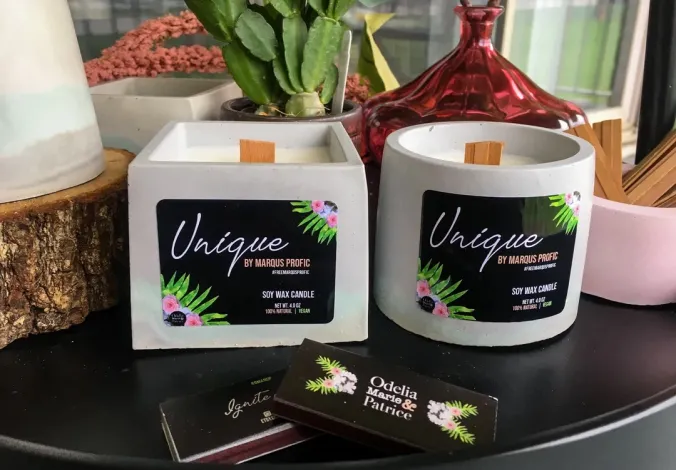
Any effective strategy contains strong tactics. This reward honors the tactics of Dorothy Height, a leader of the civil rights movement and founder of The National Council of Negro Women who was involved in the planning of the March on Washington but who was not allowed to speak at the event because she was a woman. But Dorothy Height didn't back down even with all the discrimination she faced within civil rights. She famously said that we could get a lot done if we didn't care about who got the credit. She devised the ingenious tactic of having influential white women from northern states go down to Mississippi for advocacy work, which helped to change the perception of the civil rights struggle across the nation. Her selfless spirit is one to admire and emulate.
This reward includes the coconut apricot cream wax candle "Unique" by Marqus Profic. This limited edition luxury candle was designed by artisan Candace Parrish, Ph.D. and Julian client Marqus Profic who has been wrongfully incarcerated in Pennsylvania for 17 years for a murder he could not have possibly committed. This gift also includes the Juneteenth playlist + the Julian Carryall.

Julian Bond, one of the co-founders of SNCC, the former leader of the NAACP, and one of the greatest political voices of his time, is largely responsible for what we know about the civil rights movement. He placed the movement's actions in the press and preserved them for the historical record as SNCC's Communications Director. He explained the movement to press and to the world in a way that made people see the activists on their own terms and their work as critical to the American story. This reward honors him--Julian's namesake. He loved music, even though he couldn't dance a lick. And the music he loved was an ode to the love of freedom and the importance of message.
This collection of vinyl records and books are some of his favorites that will keep the work going and the message beating in our hearts.
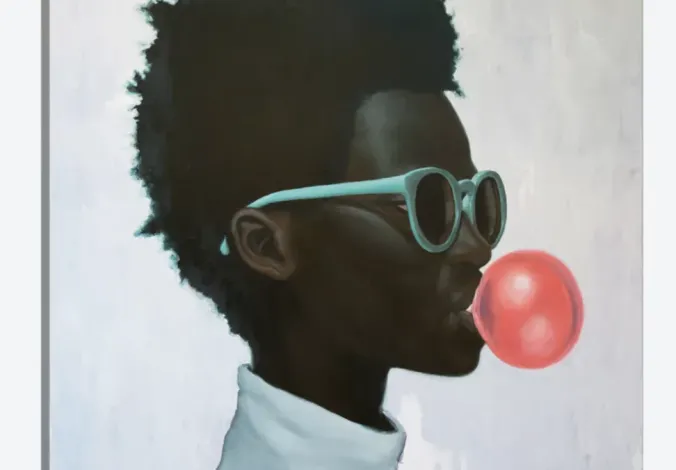
This reward honors Julian's cutting-edge vision and work. Our vision is about how things feel rather than just how they look. Julian is an opportunity to create a different palette of feelings in this nation. In the past few years, people have felt collective outrage and despair regarding civil rights, but rarely has there existed the feeling of unity or collective love that was felt during the civil rights movement. This project will help to foster those emotions. What we feel affects civil rights because civil rights at its basis is about treating somebody how you would want to be treated. Treatment, in turn, impacts someone's dignity, their self respect, their feelings about themselves. It goes to the core of who they are. So, in this sense, to transform a feeling means transforming people. It could possibly truly transform not just the law, but hearts and minds.
This reward features a canvas print of "How Far is a Light Year?" by artist Alexander Grahovsky.
+
This reward also features a hard copy edition of "Race Against Time," signed by its author, Investigative Journalist Jerry Mitchell, who went face to face against the assassins of NAACP leader Medgar Evers, Vernon Dahmer, and the three civil rights workers of Freedom Summer and secured their convictions.
+
The limited edition soy wax candle set "Unique" by Marqus Profic. This set was designed by artisan Candace Parrish, Ph.D. in concert with Julian client Marqus Profic who has been wrongfully incarcerated in Pennsylvania for 17 years for a murder he could not have possibly committed.
+
The Julian t-shirt, carryall, playlist, and our selection of books and records, as well.
Julian is the future of civil rights.
In today's world, slaying it in your profession requires being a boss public speaker. This exclusive workshop will teach you how to be just that and learn how to write your own amazing speeches, led by Jill Collen Jefferson who was Senator Wendy Davis' chief speechwriter and was one of four speechwriters on President Obama's 2012 presidential campaign before serving as chief speechwriter at President Obama's non-profit Organizing for Action, writing for President Obama, the executive director, and surrogates.
This interactive workshop will teach you how to write and structure speeches, how to connect with your audience, how to have them hang on your every work, and how to mobilize them to action. At the end of this workshop, you will have written your first draft of a speech. You'll also walk away with templates for writing an effective speech, and Jill's own personal checklist of key considerations that every great speech must incorporate. As a bonus, Jill will personally review your speech, provide edits, and help you take it to the next level.
Pro tip: If you have an event approaching where you will speak, bring your event details, and use this workshop to get your first outline or draft out of the way.
This exclusive workshop only has 10 spots.
Before Julian founder Jill Collen Jefferson was an attorney, she was a political speechwriter. She served as Senator Wendy Davis’s chief speechwriter and was one of four speechwriters on President Obama’s 2012 presidential campaign before serving as chief speechwriter at President Obama’s non-profit, Organizing for Action, where she wrote remarks for President Obama, the executive director, and surrogates.
She’s written for a president, celebrities, cabinet members, and CEOs. Yet, while Jill is honored by the opportunities she’s had, she sees speechwriting as a past life and rarely, if ever, accepts requests to write remarks these days. In order to help Julian grow, she has agreed to offer a small number of one-on-one speechwriting consultations to a handful of lucky people!
During a virtual appointment Jill will help you to be a boss public speaker and learn how to write your own amazing speeches. This consultation, Jill will teach you how to write and structure speeches, how to connect with your audience, how to have them hang on to your every word, and how to mobilize them to action. You'll also walk away with templates for writing an effective speech and Jill's own personal checklist of key considerations that every great speech must incorporate.
Pro tip: If you have an event approaching where you will speak, bring your event details, and use this appointment to get your first outline or draft out of the way.
Before Julian founder Jill Collen Jefferson was an attorney, she was a political speechwriter. She served as Senator Wendy Davis’s chief speechwriter and was one of four speechwriters on President Obama’s 2012 presidential campaign before serving as chief speechwriter at President Obama’s non-profit, Organizing for Action, where she wrote remarks for President Obama, the executive director, and surrogates.
She’s written for a president, celebrities, cabinet members, and CEOs. Yet, while Jill is honored by the opportunities she’s had, she sees speechwriting as a past life and rarely, if ever, accepts requests to write remarks these days. In order to help Julian grow, she has agreed to personally write a set of short remarks for two lucky people, meaning there are only two of these available.
If you have a real or virtual event coming up, and you’re stressed about what you’re going to say, put your mind at rest because Julian and IFW are coming to the rescue!
Jill’s offer includes an initial interview to understand what the individual wants to accomplish and to document the event’s logistics. She is also offering optional additional conversations throughout the writing process to better understand the individual’s voice.
Jill engages in deep research throughout the process and may ask to interview other individuals who are relevant to the event, the principal, or the subject matter.
Jill will discuss the editing process with the individual to craft a schedule and methodology that meets the individual at their level of comfort.
At the end of the writing process, you’ll have a short speech that’s perfectly tailored to you and your audience, written by a seasoned speechwriter.
Level up.
Before Julian founder Jill Collen Jefferson was an attorney, she was a political speechwriter. She served as Senator Wendy Davis’s chief speechwriter and was one of four speechwriters on President Obama’s 2012 presidential campaign before serving as chief speechwriter at President Obama’s non-profit, Organizing for Action, where she wrote remarks for President Obama, the executive director, and surrogates.
She’s written for a president, celebrities, cabinet members, and CEOs. Yet, while Jill is honored by the opportunities she’s had, she sees speechwriting as a past life and rarely, if ever, accepts requests to write remarks these days. In order to help Julian grow, she has agreed to personally write a keynote address (25 minutes of speaking) for one person.
Her offer includes an initial interview to understand what the individual wants to accomplish and to document the event’s logistics. She is also offering optional additional conversations throughout the writing process to better understand the individual’s voice.
Jill engages in deep research throughout the process and may ask to interview other individuals who are relevant to the event, the principal, or the subject matter.
Jill will discuss the editing process with the individual to craft a schedule and methodology that meets the individual at their level of comfort.
At the end of the writing process, you’ll have a keynote address that’s perfectly tailored to you and your audience, written by a seasoned speechwriter.
Level up.
Fund one month of Julian's travel expenses. As your reward, you may choose between any of the speechwriting rewards listed on this campaign, with the exception of a keynote address.
Fund one month of Julian's travel, accommodations, and utilities to keep us going.
Fund 1/4 of a modern-day lynching investigation, which takes one year total.
Julian's Upcoming Investigations that Need to Be Funded: The lynching of Raynard Johnson, 17, and the lynching of Nick Naylor, 23. Both young men were found hanging from trees in Mississippi.
As a reward, you may choose from among any or all of the awards listed in this campaign.*
*This excludes rewards reserved for funders of over $100,000.
Fund an entire modern-day lynching investigation, which takes one year.
Julian's Upcoming Investigations that Need to Be Funded: The lynching of Raynard Johnson, 17, and the lynching of Nick Naylor, 23. Both young men were found hanging from trees in Mississippi.
As a reward, you may choose from among any or all of the awards listed in this campaign. Additionally, you may elect to have a private meal with Jill Collen Jefferson, the Julian team, and a surprise guest in Mississippi.
Rewards
Just Because I Care
The first step in civil rights is courage. This reward honors the courage of Mrs. Fannie Lou Hamer who risked everything, was beaten, and maimed for life because she believed with everything in her that we were all meant to be free. Follow her in taking the first step.
In civil rights, we lead by example because we are not just building the beloved community; we are the beloved community. Mrs. Ella Baker was the mastermind behind the Student Nonviolent Coordinating Committee (SNCC), the organization that fought against oppression through direct action, such as sit-ins at lunch counters across the South. She taught SNCC that civil rights "is bigger than a hamburger." Those words ring true today. This isn't just about not being lynched or brutalized. It's the freedom to be authentically who you are in any setting. It's being born somebody to everybody. It's acceptance and love. It's a new world.
This playlist carries with it the emotions, joy, and purpose of that world. Many of these songs, I fell in love with at the same time I fell in love with civil rights, and they remind me of my calling. Let them lead you to see the leader you are and the one you will become.

In civil rights, not every day will feel like a victory. On those troublesome days--the days in between--we must have faith and keep working toward the victory that will come. One thing John Lewis always said in public and in private in his office was "Keep the faith." He knew how important that single element was to fulfilling our calling on this earth and creating the world we deserve.
This Julian carryall is symbolic of that faith that you must carry with you at all times. It encapsulates all that we do, just as this carryall is a capsule for your materials, your life, the element of you. All you have to do is keep the faith.

Accomplishing goals in civil and human rights requires a strong, detailed strategy. Bayard Rustin, a key strategist behind the 1963 March on Washington, understood this fact. One reason why the civil rights movement was so successful is because its leaders understood the importance of strategy, tactics, discipline, and execution.
As a thank you for being part of the future of civil rights, you will get the Juneteenth playlist + the Julian Carryall.

Any effective strategy contains strong tactics. This reward honors the tactics of Dorothy Height, a leader of the civil rights movement and founder of The National Council of Negro Women who was involved in the planning of the March on Washington but who was not allowed to speak at the event because she was a woman. But Dorothy Height didn't back down even with all the discrimination she faced within civil rights. She famously said that we could get a lot done if we didn't care about who got the credit. She devised the ingenious tactic of having influential white women from northern states go down to Mississippi for advocacy work, which helped to change the perception of the civil rights struggle across the nation. Her selfless spirit is one to admire and emulate.
This reward includes the coconut apricot cream wax candle "Unique" by Marqus Profic. This limited edition luxury candle was designed by artisan Candace Parrish, Ph.D. and Julian client Marqus Profic who has been wrongfully incarcerated in Pennsylvania for 17 years for a murder he could not have possibly committed. This gift also includes the Juneteenth playlist + the Julian Carryall.

Julian Bond, one of the co-founders of SNCC, the former leader of the NAACP, and one of the greatest political voices of his time, is largely responsible for what we know about the civil rights movement. He placed the movement's actions in the press and preserved them for the historical record as SNCC's Communications Director. He explained the movement to press and to the world in a way that made people see the activists on their own terms and their work as critical to the American story. This reward honors him--Julian's namesake. He loved music, even though he couldn't dance a lick. And the music he loved was an ode to the love of freedom and the importance of message.
This collection of vinyl records and books are some of his favorites that will keep the work going and the message beating in our hearts.

This reward honors Julian's cutting-edge vision and work. Our vision is about how things feel rather than just how they look. Julian is an opportunity to create a different palette of feelings in this nation. In the past few years, people have felt collective outrage and despair regarding civil rights, but rarely has there existed the feeling of unity or collective love that was felt during the civil rights movement. This project will help to foster those emotions. What we feel affects civil rights because civil rights at its basis is about treating somebody how you would want to be treated. Treatment, in turn, impacts someone's dignity, their self respect, their feelings about themselves. It goes to the core of who they are. So, in this sense, to transform a feeling means transforming people. It could possibly truly transform not just the law, but hearts and minds.
This reward features a canvas print of "How Far is a Light Year?" by artist Alexander Grahovsky.
+
This reward also features a hard copy edition of "Race Against Time," signed by its author, Investigative Journalist Jerry Mitchell, who went face to face against the assassins of NAACP leader Medgar Evers, Vernon Dahmer, and the three civil rights workers of Freedom Summer and secured their convictions.
+
The limited edition soy wax candle set "Unique" by Marqus Profic. This set was designed by artisan Candace Parrish, Ph.D. in concert with Julian client Marqus Profic who has been wrongfully incarcerated in Pennsylvania for 17 years for a murder he could not have possibly committed.
+
The Julian t-shirt, carryall, playlist, and our selection of books and records, as well.
Julian is the future of civil rights.
In today's world, slaying it in your profession requires being a boss public speaker. This exclusive workshop will teach you how to be just that and learn how to write your own amazing speeches, led by Jill Collen Jefferson who was Senator Wendy Davis' chief speechwriter and was one of four speechwriters on President Obama's 2012 presidential campaign before serving as chief speechwriter at President Obama's non-profit Organizing for Action, writing for President Obama, the executive director, and surrogates.
This interactive workshop will teach you how to write and structure speeches, how to connect with your audience, how to have them hang on your every work, and how to mobilize them to action. At the end of this workshop, you will have written your first draft of a speech. You'll also walk away with templates for writing an effective speech, and Jill's own personal checklist of key considerations that every great speech must incorporate. As a bonus, Jill will personally review your speech, provide edits, and help you take it to the next level.
Pro tip: If you have an event approaching where you will speak, bring your event details, and use this workshop to get your first outline or draft out of the way.
This exclusive workshop only has 10 spots.
Before Julian founder Jill Collen Jefferson was an attorney, she was a political speechwriter. She served as Senator Wendy Davis’s chief speechwriter and was one of four speechwriters on President Obama’s 2012 presidential campaign before serving as chief speechwriter at President Obama’s non-profit, Organizing for Action, where she wrote remarks for President Obama, the executive director, and surrogates.
She’s written for a president, celebrities, cabinet members, and CEOs. Yet, while Jill is honored by the opportunities she’s had, she sees speechwriting as a past life and rarely, if ever, accepts requests to write remarks these days. In order to help Julian grow, she has agreed to offer a small number of one-on-one speechwriting consultations to a handful of lucky people!
During a virtual appointment Jill will help you to be a boss public speaker and learn how to write your own amazing speeches. This consultation, Jill will teach you how to write and structure speeches, how to connect with your audience, how to have them hang on to your every word, and how to mobilize them to action. You'll also walk away with templates for writing an effective speech and Jill's own personal checklist of key considerations that every great speech must incorporate.
Pro tip: If you have an event approaching where you will speak, bring your event details, and use this appointment to get your first outline or draft out of the way.
Before Julian founder Jill Collen Jefferson was an attorney, she was a political speechwriter. She served as Senator Wendy Davis’s chief speechwriter and was one of four speechwriters on President Obama’s 2012 presidential campaign before serving as chief speechwriter at President Obama’s non-profit, Organizing for Action, where she wrote remarks for President Obama, the executive director, and surrogates.
She’s written for a president, celebrities, cabinet members, and CEOs. Yet, while Jill is honored by the opportunities she’s had, she sees speechwriting as a past life and rarely, if ever, accepts requests to write remarks these days. In order to help Julian grow, she has agreed to personally write a set of short remarks for two lucky people, meaning there are only two of these available.
If you have a real or virtual event coming up, and you’re stressed about what you’re going to say, put your mind at rest because Julian and IFW are coming to the rescue!
Jill’s offer includes an initial interview to understand what the individual wants to accomplish and to document the event’s logistics. She is also offering optional additional conversations throughout the writing process to better understand the individual’s voice.
Jill engages in deep research throughout the process and may ask to interview other individuals who are relevant to the event, the principal, or the subject matter.
Jill will discuss the editing process with the individual to craft a schedule and methodology that meets the individual at their level of comfort.
At the end of the writing process, you’ll have a short speech that’s perfectly tailored to you and your audience, written by a seasoned speechwriter.
Level up.
Before Julian founder Jill Collen Jefferson was an attorney, she was a political speechwriter. She served as Senator Wendy Davis’s chief speechwriter and was one of four speechwriters on President Obama’s 2012 presidential campaign before serving as chief speechwriter at President Obama’s non-profit, Organizing for Action, where she wrote remarks for President Obama, the executive director, and surrogates.
She’s written for a president, celebrities, cabinet members, and CEOs. Yet, while Jill is honored by the opportunities she’s had, she sees speechwriting as a past life and rarely, if ever, accepts requests to write remarks these days. In order to help Julian grow, she has agreed to personally write a keynote address (25 minutes of speaking) for one person.
Her offer includes an initial interview to understand what the individual wants to accomplish and to document the event’s logistics. She is also offering optional additional conversations throughout the writing process to better understand the individual’s voice.
Jill engages in deep research throughout the process and may ask to interview other individuals who are relevant to the event, the principal, or the subject matter.
Jill will discuss the editing process with the individual to craft a schedule and methodology that meets the individual at their level of comfort.
At the end of the writing process, you’ll have a keynote address that’s perfectly tailored to you and your audience, written by a seasoned speechwriter.
Level up.
Fund one month of Julian's travel expenses. As your reward, you may choose between any of the speechwriting rewards listed on this campaign, with the exception of a keynote address.
Fund one month of Julian's travel, accommodations, and utilities to keep us going.
Fund 1/4 of a modern-day lynching investigation, which takes one year total.
Julian's Upcoming Investigations that Need to Be Funded: The lynching of Raynard Johnson, 17, and the lynching of Nick Naylor, 23. Both young men were found hanging from trees in Mississippi.
As a reward, you may choose from among any or all of the awards listed in this campaign.*
*This excludes rewards reserved for funders of over $100,000.
Fund an entire modern-day lynching investigation, which takes one year.
Julian's Upcoming Investigations that Need to Be Funded: The lynching of Raynard Johnson, 17, and the lynching of Nick Naylor, 23. Both young men were found hanging from trees in Mississippi.
As a reward, you may choose from among any or all of the awards listed in this campaign. Additionally, you may elect to have a private meal with Jill Collen Jefferson, the Julian team, and a surprise guest in Mississippi.